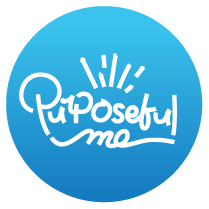
Mindful Communication – Seeing Ourselves in Our Own Conversations
In last week’s post, I explored the use of filler phrases like “blah blah” and “what what,” and it made me realise that there were other phrases in all main languages in Nigeria and I suspect in other regions of the world.
I’ve had a few people reach out to me to say how they are suddenly aware of these little conversational fillers with many finding it irritating in others. For some, it’s become a kind of game: “Oh, there it is again!” But for others, it’s struck a deeper chord. Realising how often we skim past certain details in conversation might shine a light on how we listen, connect, and even see ourselves.
Having been on a two-day leadership coaching course where listening was a key element, it’s got me thinking that a part 2 of this post with an inward-looking lens is needed.

So what’s really going on when we say “blah blah”? And could these little fillers be revealing something more personal about us than we realise?
The Shortcut Syndrome: are you undervaluing your voice?
Let’s face it: life moves fast, and sometimes we feel like we need to keep up by compressing what we say. A whole story becomes, “So, I talked to my friend, blah blah, and we sorted it out.” It’s an efficient way to fast-forward through what we feel doesn’t need the spotlight. But what does that say about us?
Maybe we’re rushed, busy, or just genuinely not that invested in what we’re saying. Or maybe we feel the other person isn’t invested. It could be a hint that we think we’re not being understood or heard fully. Or maybe we feel we’re just one of those “background characters” in our own story, glossing over things because we assume others aren’t that interested. This little habit of “blah blah” could be a subtle sign that we’re undervaluing our own voice.
Reflecting on How We Listen
Interestingly, the more we notice “blah blah” in our own speech, the more aware we become of it in others. Have you ever heard someone else say “yada yada” or “what what” mid-sentence and realised you zoned out too? When others use these phrases, it’s a reminder to stop, really listen, and tune into what’s not being said. Sometimes, “blah blah” acts as a little flag signalling where someone’s unsure, tired, or holding back.

If we start hearing it in ourselves, it could mean we’re zoning out in our own conversation—or that we’re moving through life on autopilot. Maybe we’re not present enough in our own experiences to feel like they deserve more than a quick “blah blah.” Taking the time to flesh out our stories and thoughts could actually remind us to appreciate those little details.
Mirror or a Shield?
If you find yourself saying “blah blah” more than you realised, it might be time to look inward. Start by asking yourself a few questions: Do I tend to gloss over my own thoughts? Why am I rushing through this part? Do I believe the person I’m talking to values what I’m saying? Do I?
Self-reflection doesn’t mean making every sentence longer, but it’s worth considering the value behind the things we abbreviate. Maybe you’ve caught yourself glossing over details in order to seem easygoing or not too intense. But are those little details what make your story meaningful? Could it be that saying “blah blah” too often is your own shortcut to avoiding vulnerability?
We can all benefit from a bit of introspection about our habits. Are we using “blah blah” to keep ourselves from diving too deep? If so, what’s the harm in going a little deeper once in a while?
A Call to More Mindful Communication
So here’s a challenge for us this week: the next time you catch yourself about to say “blah blah” or “what what,” pause. Notice what you’re feeling. Maybe you’re ready to skip over a part because you’re not sure it matters. Maybe it’s nerves, or maybe it’s habit. Whatever it is, try giving that part of the story a little more room to breathe.

Listen to the full version of your own words, and notice how it feels to be truly heard, even by yourself. And when you’re listening to someone else, pay attention to their “blah blah” moments too. When they cut themselves short, consider responding with curiosity, giving them the space to dive a little deeper. You may be surprised at the kind of connection that blossoms from a conversation where people feel they can share the whole story—not just the highlights.
Embracing Your Full Story
Your stories, thoughts, and experiences deserve more than a quick “yada yada.” Allow yourself to linger a bit more in the details, to share a little bit longer, and transform how we connect.
And if we catch ourselves falling back into “blah blah” territory, that’s okay too. At least now, we’ll know it for what it is: a gentle reminder to slow down, to listen, and to let ourselves and others be heard—fully.
In a world full of fast-forward conversations, embracing our own stories with patience and curiosity is a gift. So, this week, try to replace “blah blah” with the full story. It may just be the start of richer, more meaningful conversations—ones where nobody needs to wonder what got lost in the “blah blah” moments.
Sorry, the comment form is closed at this time.


Salako Racheal Abosede
Your write up are encouraging, more Grace to you in Jesus name amen
Olusegun BAYODE
I love this follow-up article. We all fall into the trap of this mannerism at one time or the other. Within 24hrs after I read the first article, I attended a marketing seminar. One of the facilitators went overboard with the use of the bla bla bla. This is a seminar where we have gathered to learn so why hold back?
My take is that there is no offence in using such words but you must be able to identify the right moment and circumstance where it’s suitable. For me, I always use such words when I de-escalate issues.